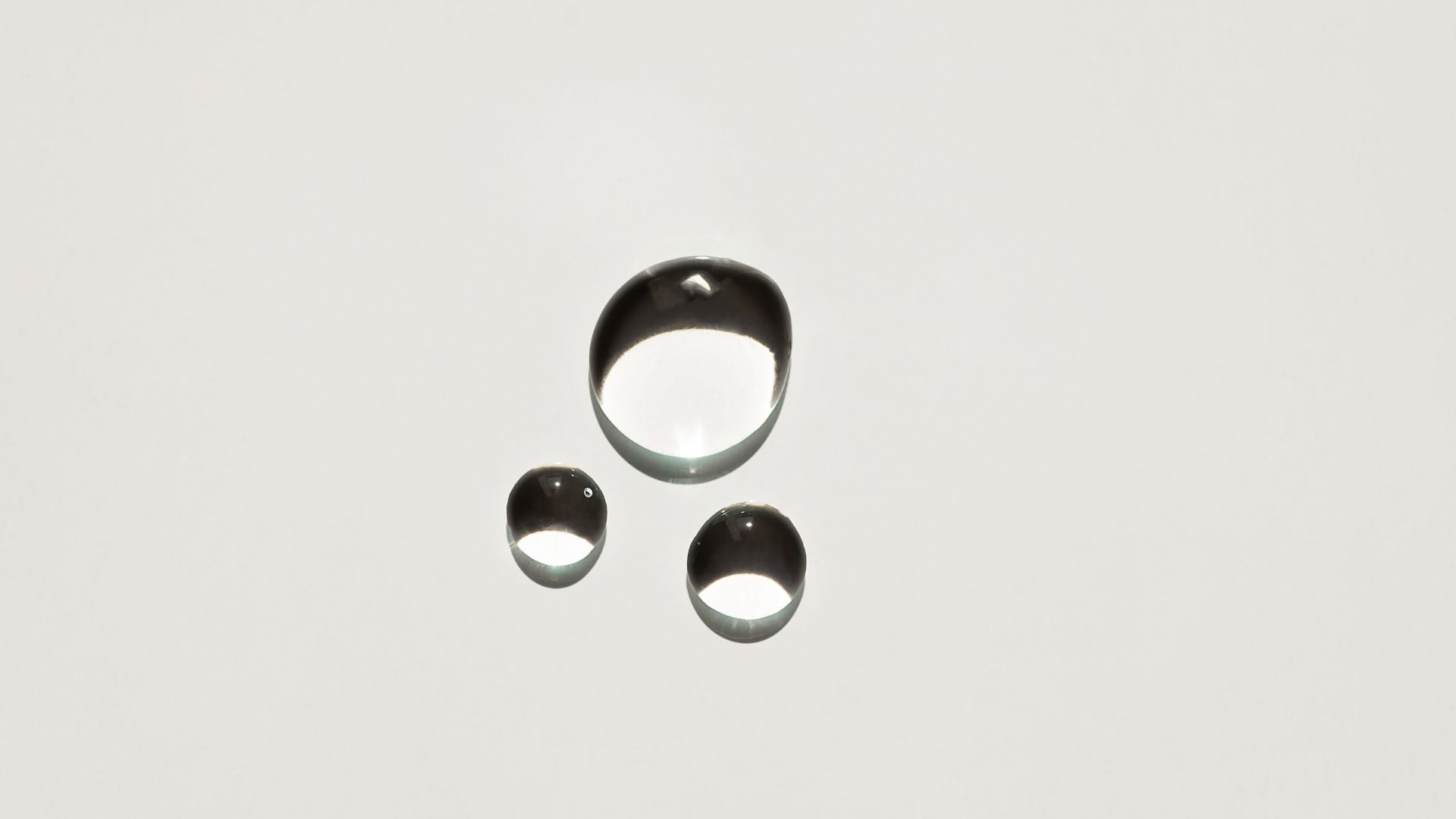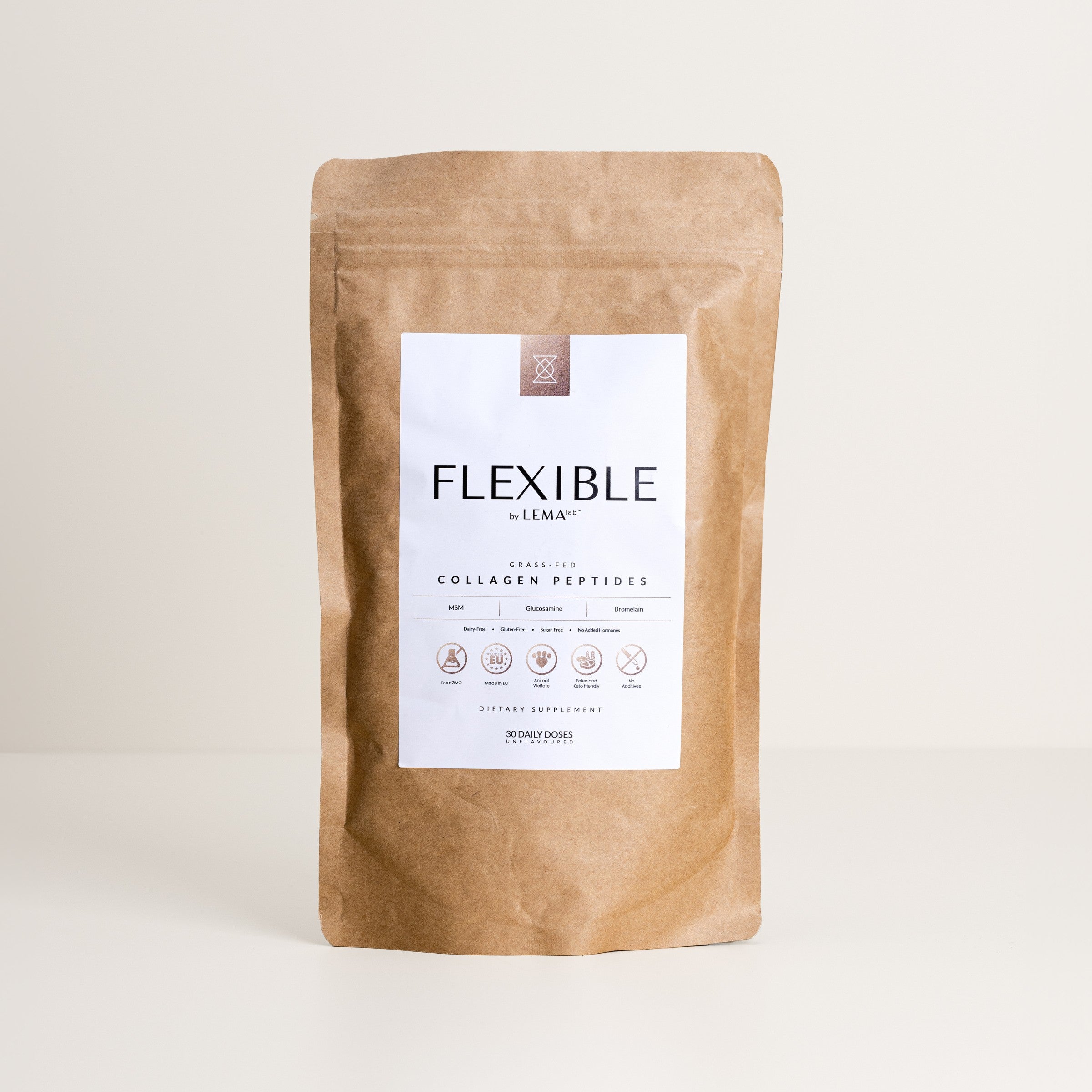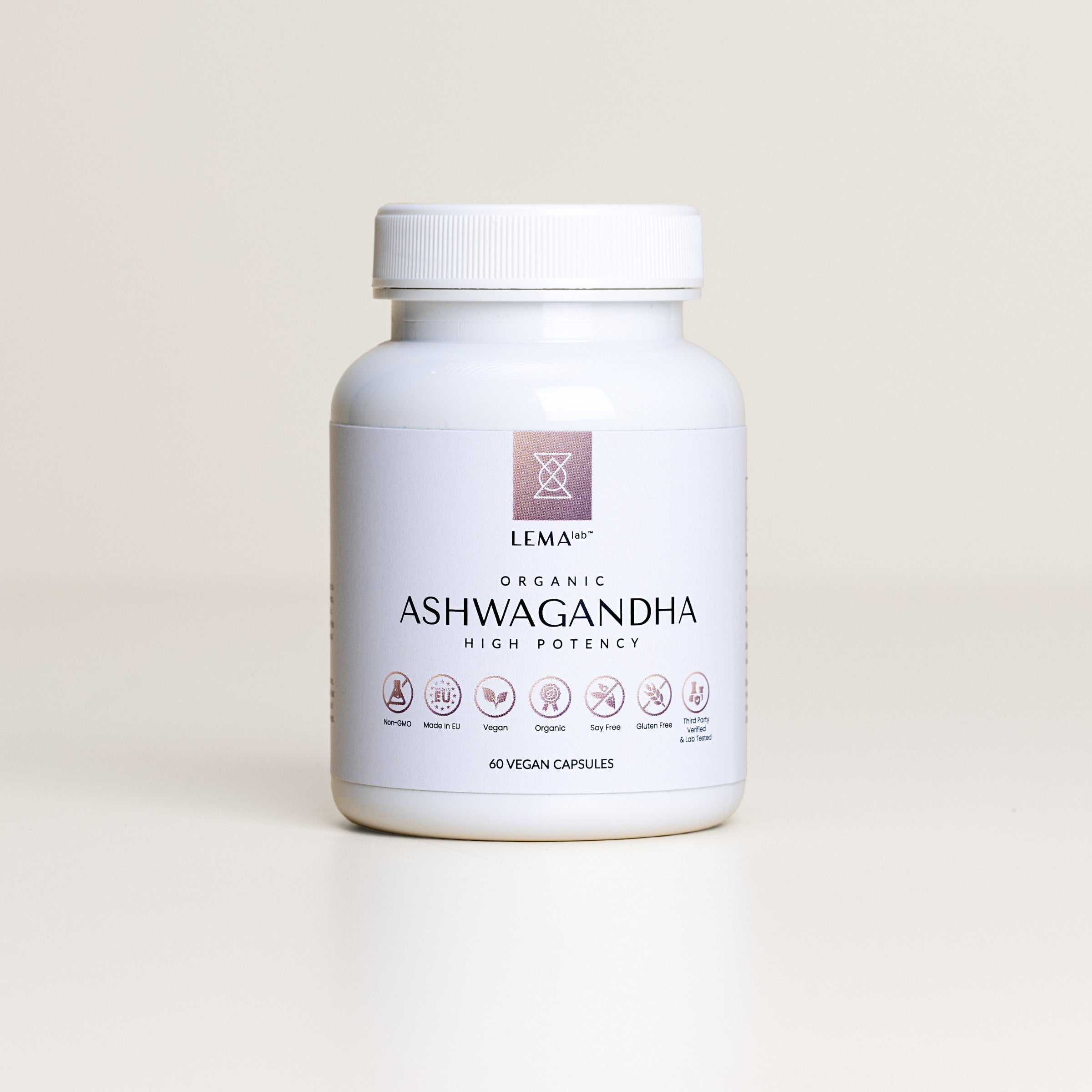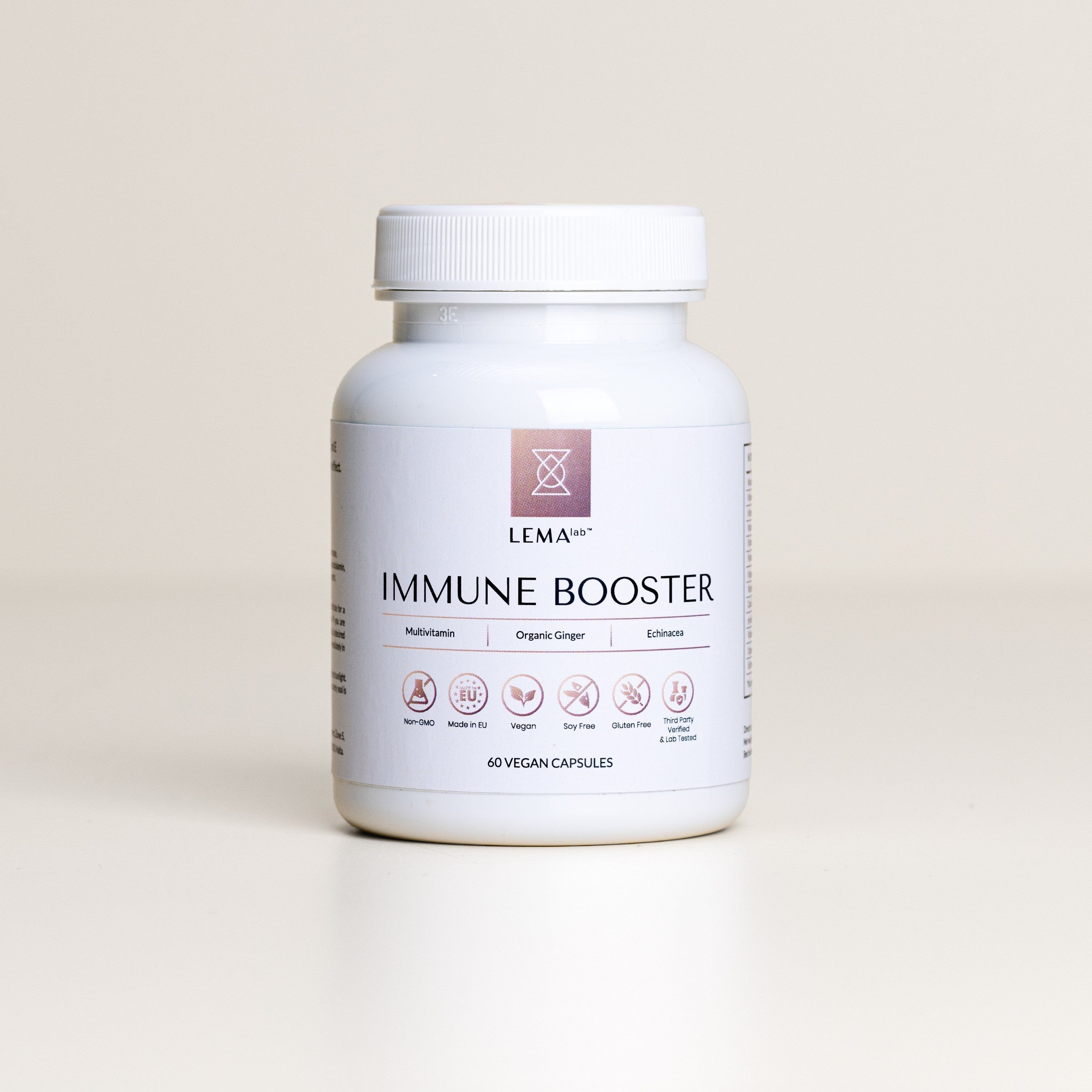
7 PROVEN HABITS TO IMPROVE YOUR MOOD USING SCIENCE
Do you ever feel like you are in a dark cloud and can't step out of it? Are you snapping at people or feeling down for no apparent motives? Well, you're not alone. According to the World Health Organization, over 300 million people suffer from depression globally [1]—and that's just one type of mood disorder.
Many different hormones in our bodies influence our moods.
- Serotonin (well-being, happiness)
- Dopamine (pleasure, motivation)
- Endorphins (pain relief, relaxation)
- Cortisol (fight or flight, alertness)
- Melatonin (sleep-wake cycle)
By understanding how these hormones—and others— work, you can take action to improve your mood and become more in control of how you respond to external circumstances. Let's talk about how to improve your mood using science.
1- LEARN TO SAY NO

One of the most important things you can do for your mood is to learn to say no. When we say yes to too many things, we may end up feeling overwhelmed and stressed.
When you're feeling overwhelmed, your body releases the stress hormone cortisol. The overproduction of this hormone can negatively impact your mood and lead to physical health problems such as higher inflammation (high levels of C-reactive protein (CRP) in the blood) and a weakened immune system. Increased CRP levels are also associated with more severe symptoms of depression and mood disorders [2]. So, if you find yourself taking on too much, it's essential to learn to say no.
2- NO SCREEN TIME AFTER 10 PM

Another way to improve your mood is to prioritise your sleep. To do so, you need to limit your screen time, especially before bed. For most people, the best time to trim screen time is around ten o'clock at night.
Bright light can disrupt our ability to produce melatonin—a naturally produced hormone that makes you fall and stay asleep.
Additionally, screen-based light may affect sleep via several pathways [3]:
- Increasing arousal and reducing sleepiness at bedtime
- Disrupting sleep architecture (different crucial sleep cycles)
- Delaying the circadian rhythm and postponing the time you fall asleep resulting in shortened sleep duration (unless wake-time is also delayed).
When we don't get enough sleep or have a poor quality of sleep, it can lead to many problems, including mood swings. So, to improve your mood, ensure you're not looking at screens before bed.
3- START YOUR DAY WITH A BRISK WALK

Starting your day with a brisk walk is another great way to improve your mood. Exercise has been shown to impact our mental health positively. Daily exercise can seem daunting for many, but research suggests that fast walking for at least 35 minutes can enhance your mood and relieve mild to moderate depression symptoms [4]. This simple habit will release endorphins, reducing anxiety.
Additionally, walking is a great way to get some fresh air and vitamin D. Vitamin D is necessary for our mood, as it can help improve our serotonin (happy hormone) levels. So, if you're feeling down, try going for a walk!
4- ABSORB BRIGHT MORNING SUNLIGHT

Natural light in the morning will help you regulate your sleep-wake cycle closely linked to hormonal productions that ultimately influence your mood. Sunlight also has several other benefits for our mood. Ultraviolet radiation (UVR) increases blood levels of natural opiates (endorphins)[5]. They help relieve pain, reduce stress and improve mood. Ensure you get some sun every day, ideally right after awakening.
5- EMBRACE COLD EXPOSURE

Cold therapy, a practice in which you expose the body to cold temperatures for a specific timeframe, causing a physiological stress response, may have positive benefits for our mental health.
Although the field needs more research, lacking randomised controlled trials, several studies reveal that cold therapy (also called cryotherapy or cold immersion) is a potential treatment for depression [6]. Cold immersions stimulate our sympathetic nervous system and
boost the production of 'feel-good' hormones and neurotransmitters (beta-endorphins, noradrenaline and dopamine). These mechanisms can decrease the symptoms of depression and anxiety by biochemically influencing our brain and body, elevating our mood.
6- POSTPONE CAFFEINE

Consuming caffeine immediately after waking up can disrupt our natural cortisol production needed for energy and good mood. Cortisol levels naturally peak approximately two hours after awakening. Then, they slowly decrease throughout the day until sleep time.
By starting our days with caffeine too soon, we force our cortisol levels to climb quicker and peak sooner [7]. As a result, these levels drop earlier in the day, producing possible lethargy and low mood. The best time to introduce caffeine into your body is at least 90 minutes after waking up, letting your body wake up naturally and maintain a more stable mood.
7- EAT FOR YOUR BRAIN

What we eat can have a significant impact on our mood. For example, eating sugary and processed foods can lead to a crash in blood sugar levels, which can cause mood swings.
Additionally, specific foods have a proven role in promoting a positive mood and preventing depressive symptoms [8]. A systematic literature review researched 34 nutrients that have a proven positive effect on people's well-being. The Antidepressant Food Score (AFS) describes 12 nutrients that have powerful antidepressant properties. As a dietary supplement, consider organic Ashwagandha, known as a mood enhancer & sleep support.

CONLUSION
These are just a few of the many ways that you can improve your mood. Try implementing some of these science-backed tips into your life and take advantage of the hormonal benefits.
References
[1] Depression and Other Common Mental Disorders. World Health Organization. 2017
[2] Milton DC, Ward J, Ward E, Lyall DM, Strawbridge RJ, Smith DJ, Cullen B. The association between C-reactive protein, mood disorder, and cognitive function in UK Biobank. Eur Psychiatry. 2021 Feb 1;64(1):e14. doi: 10.1192/j.eurpsy.2021.6. PMID: 33517931; PMCID: PMC8057439.
[3] Hale L, Kirschen GW, LeBourgeois MK, et al. Youth Screen Media Habits and Sleep: Sleep-Friendly Screen Behavior Recommendations for Clinicians, Educators, and Parents. Child Adolesc Psychiatr Clin N Am. 2018;27(2):229-245. doi:10.1016/j.chc.2017.11.014
[4] Craft LL, Perna FM. The Benefits of Exercise for the Clinically Depressed. Prim Care Companion J Clin Psychiatry. 2004;6(3):104-111. doi:10.4088/pcc.v06n0301
[5] Mead MN. Benefits of sunlight: a bright spot for human health [published correction appears in Environ Health Perspect. 2008 May;116(5):A197]. Environ Health Perspect. 2008;116(4):A160-A167. doi:10.1289/ehp.116-a160
[6] Nikolai A. Shevchuk, Adapted cold shower as a potential treatment for depression, Medical Hypotheses, Volume 70, Issue 5, 2008, Pages 995-1001, ISSN 0306-9877
[7] Lovallo WR, Whitsett TL, al'Absi M, Sung BH, Vincent AS, Wilson MF. Caffeine stimulation of cortisol secretion across the waking hours in relation to caffeine intake levels. Psychosom Med. 2005;67(5):734-739. doi:10.1097/01.psy.0000181270.20036.06
[8] LaChance LR, Ramsey D. Antidepressant foods: An evidence-based nutrient profiling system for depression. World J Psychiatry. 2018 Sep 20;8(3):97-104. doi: 10.5498/wjp.v8.i3.97. PMID: 30254980; PMCID: PMC6147775.














Leave a comment
This site is protected by hCaptcha and the hCaptcha Privacy Policy and Terms of Service apply.